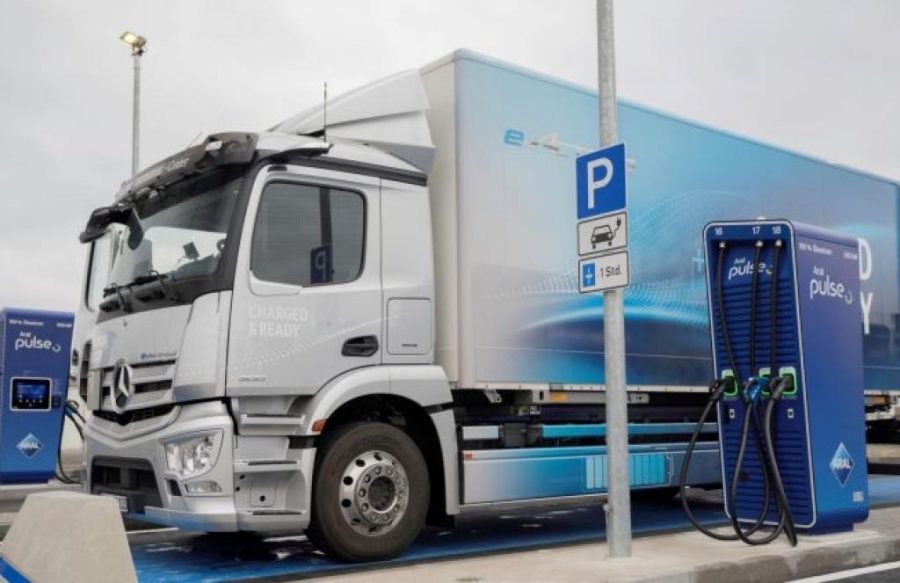A 600-km road stretch in Western Germany is now Europe’s first charging corridor for electric heavy-duty vehicles. Its function is to boost the logistical sector along one of the busiest freight routes on the continent.
The project of installing six ultra-fast public charging locations along the section was implemented by Aral (bp’s German retail brand) with support from the German government. As informed The Mayor.
The charging corridor for e-trucks is located between the Rhine-Neckar metropolitan area and the Rhine-Ruhr metropolitan region. Two more stations will be added within the next six months.
That stretch is part of a more extensive network of roads, considered among the most important for European trade and logistics, stretching for 1300 kilometres from the Port of Rotterdam (Netherlands) to the Port of Genoa (Italy).
Putting the focus on the sustainability of heavy-duty traffic
Much of the efforts to create greener mobility on European roads have highlighted the regular drivers and passenger cars, and the need to have a more robust charging stations network if a true revolution of e-cars is desired.
However, fostering such a revolution cannot ignore the need of the cargo transport sector, which is the other big presence on European roads. Sustainability, reliability and efficiency are just as crucial for the movement of merchandise, and this is where the German charging corridor shows the way forward.
The 300kw charging stations are each capable of charging more than 20 e-trucks, per charger each day. An electric truck’s range can reach up to 200 kilometres in around 45 minutes using the ultra-fast charge points.
By 2030, it has been estimated that approximately 270,000 battery electric medium and heavy-duty vehicles will be in operation in Europe. They will require up to 140,000 public and destination electric charging points.





















